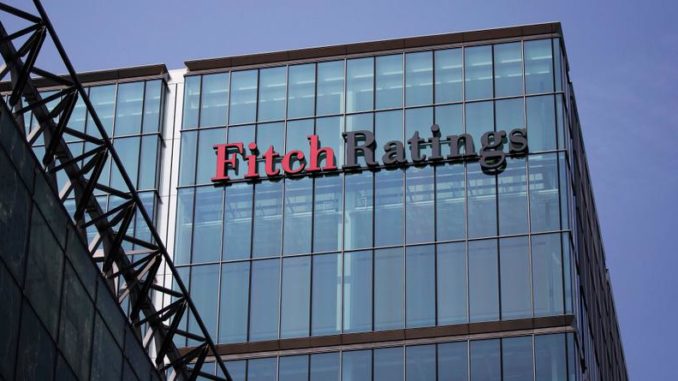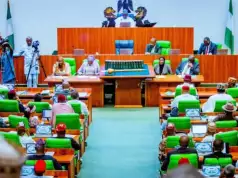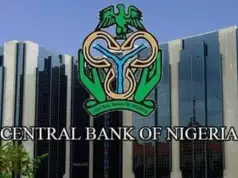Fitch Ratings has affirmed Nigeria’s long-term foreign-currency issuer default outlook at ‘B-‘ with a stable outlook.
It said at the weekend that the country’s major strengths are a large economy, a developed and liquid domestic debt market, and large oil and gas reserves.
This affirmation came as the Governor of the Central Bank of Nigeria Olayemi Cardoso, while playing host to former CBN governor, Muhammadu Sanusi II, reiterated his commitment to change the story of the apex bank and make its policies more impactful on Nigerians.
The rating agency, however, noted that the rating was constrained by weak governance, structurally very low non-oil revenue, high hydrocarbon dependence, security challenges, high inflation, low net foreign exchange reserves, and ongoing weakness in the exchange-rate framework.
It observed that Tinubu’s cabinet is supportive of reform which had contributed to the reform of the exchange rate framework much more quickly than it anticipated.
“However, there has recently been some backtracking on reforms, notably a lower degree of price discovery in the FX market than in late June, raising doubt about the strength of this positive momentum.
“In addition, new data on the Central Bank of Nigeria (CBN) suggests its net foreign-exchange position is substantially weaker than we previously understood. These factors are reflected in the stable outlook,” Fitch said.
It added that FX shortages have continued to weigh on economic activity and further FX liberalisation and deter foreign capital.
The CBN in October, lifted the ban on providing FX for imports of 43 items and began this week to clear nearly $6.7 billion of unmet FX forwards.
“However, there has been a renewed widening of the gap between the official and parallel exchange rates since July with a premium of over 30 percent over the official rate. Average daily FX turnover at the official exchange rate window has fallen back to near April 2023 levels (well below pre-pandemic), at $95 million in September,” Fitch stated.
Despite a record of faster reform progress, Fitch stated that constraints remain, citing the removal of fuel subsidies, which cost nearly two percent of the Gross Domestic Product in 2022.
It added that FX shortages continued to weigh on economic activity and further FX liberalisation, and deter foreign capital.
“It also unified the multiple exchange rate windows, and the official investors and exporter rate was allowed to depreciate by close to 40 percent, with renewed volatility around end-October,” it stated.
“In October, the CBN lifted the ban on providing FX for imports of 43 items and is currently taking forward plans to clear nearly $6.7 billion of unmet FX forwards. However, there has been a renewed widening of the gap between the official and parallel exchange rates since July with a premium of over 30 percent over the official rate.
“Average daily FX turnover at the official exchange rate window has fallen back to near April 2023 levels (well below pre-pandemic), at $95 million in September,” it added.
Meanwhile, Fitch raised concerns about the weaker net FX reserve position, noting that the CBN’s gross FX reserves fell to $33.2 billion in September, from $37.1 billion at end-2022.
“In August 2023, the CBN published its consolidated financial statements for 2022, its first since 2015. These indicate its net foreign exchange position is weaker than we understood, although sizeable gaps remain, preventing a reliable assessment.
“Short-term CBN liabilities at end-2022 included $5.5 billion of foreign-currency (FC) securities lending, and $6.8 billion of FC forward payables.
“There is a particular lack of detail on additional near $32 billion of ‘FX forwards, OTC futures, and currency swaps’, which is recorded as an off-balance-sheet ‘commitment’ and not broken down.
“While this likely includes some non-deliverable contracts settled in naira and commitments of a longer tenor, it suggests domestic bank swaps with CBN are probably higher than the $10-12 billion Fitch previously estimated.
“Nevertheless, we expect most swaps will continue to be rolled over, reflecting incentives for banks to invest the naira received in high-yielding sovereign securities and the sector’s limited reliance on swaps for FC liquidity, given sizeable FC placements with international banks,” it stated.










